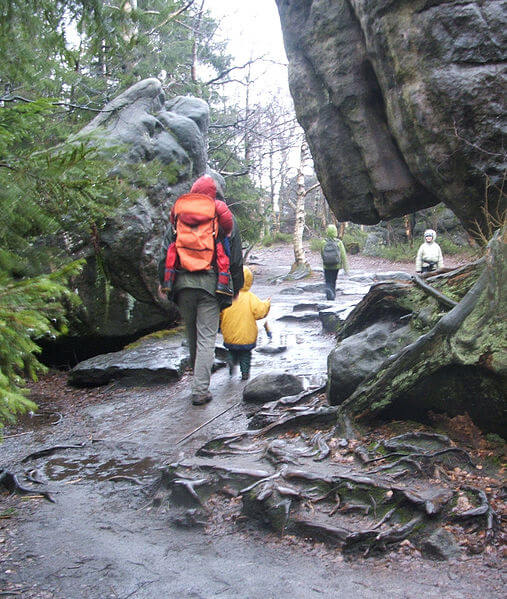At an environmental conference that took place this week, it was decided to replace the concept of nature conservation with "investment in nature"

On October 18, 2011, there was a meeting of "initiative leaders" for the preservation of nature and the environment. Among the participants is also Peter Kareiva, Chief Scientist atNature conservation(Nature Conservancy) an organization based in Arlington - Virginia.
Before the conference, Kariva was interviewed by "Nature" and came up with ideas on how to "sell" nature conservation to the general public and even more so to leaders. Since nature conservation is not rated as an important issue, the approach must be changed. Kariva suggested that instead of trying to convince of the need to preserve nature, it would be correct to adopt the "motto": "invest in nature".
Environmental organizations initiate change while understanding that despite the many efforts there is no success in achieving the conservation goals and in protecting nature and the environment from the effects of human activity. In spite of the terrestrial and marine areas that are declared as reserves, the damage to biological diversity is increasing.
The intention is to see the human population's need for energy, food and economic development as a motive for nature conservation activities (and not as a negative factor as is customary). They try to "sell" the different point of view to the conference attendees. Although leaders as well as the general public are all in favor of conservation, the issue is not at the top of the scale of importance (priorities). Conservation has become an issue in the background of things, a situation that must be changed so that everyone understands that preserving the environment and nature is not only for "strange" stakeholders, but an issue that affects all of our lives.
In the days when the global economy measured, it is necessary to offer ideas that will cure the situation, ideas for investing in nature that will benefit the investors and more importantly, benefit the general public. Because looking at the collapse of banks and other "financial" businesses it turns out that they are investing in "air", investments that have no basis and real value.
If instead they invest in infrastructure in nature such as: floodplains, mangroves, coral reefs, equatorial forests - the saying "protect nature" will be replaced by "invest in nature", because in the "economic" world it is easier and simpler to market investment instead of conservation. For example: the organization headed by Kariva is involved in the restoration of reefs, oyster habitats and marshes in the Gulf of Mexico. This restoration will allow a source of livelihood from oyster shucking but will also protect the residents of the beaches from storm damage. At the disposal of the organization are scientists such as agronomists who advise farmers and promote technological developments while paying attention to the prevention of damage to nature.
There is a good chance for cooperation with chemical companies through a joint search for the location of factories that need a source of water near the factory, while the factory undertakes to improve the quality of the water down the stream and to restore the natural environment around the factory.
A similar collaboration exists between the World Conservation Organization WWF and the Coca-Cola factories. Similar projects were carried out in Israel - the Society for the Protection of Nature in cooperation with the Electric Company. The intention is not to judge the factories according to "the amount of money that changes hands", but according to what will happen to the people, the residents and the environment.
The scientific conference marked the beginning of the internalization of the means - investing in nature for the benefit of investors, the human population and the natural environment.
We will add that over the years, the argument that the investment in nature conservation, investment in the environment, is an investment that yields significant income: direct income for the investor and indirect income - through environmental improvement for all the residents of the area.

3 תגובות
It seems to me that the concept of "cultivating nature" will be more successful and more productive. I do not think at all, and especially these days, that the utilitarian economic model should be adopted, and as far as "green" issues are concerned, it is even important to stay away from it. However, a negative or "paternalistic" approach also has its own limitations and disorders. The "cultivation" comes to answer both the active side - the investment, the strengthening, the improvement of knowledge and accessibility, the contribution to the environment and the population living nearby (similar to "educational cultivation or the cultivation of beauty") and to the side of the guard who defends against destruction and sabotage such as, let's say, "cultivation of values". In any case, the perception and approach that even in the "green world" should strive to refresh the thinking, to receive ideas from everyone and to perform a correct and constant renewal is acceptable and desirable.
Just a great idea.
It is likely that it will be necessary to educate a new generation of speakers for the green movements, but it is worth the effort.
October 18 was a Tuesday
October 16 was a Sunday
With all the holidays, the days get confused
Happy New Year